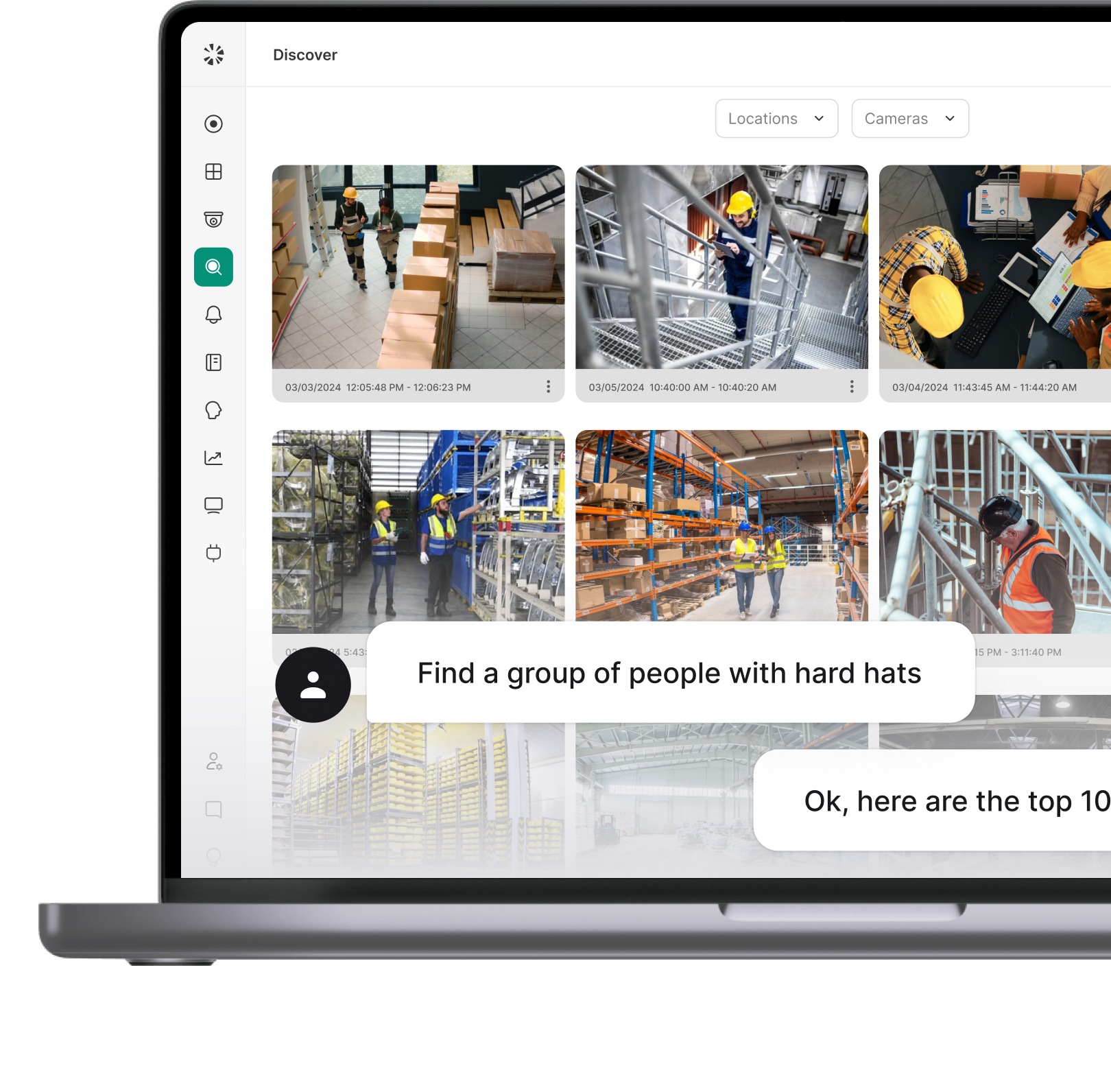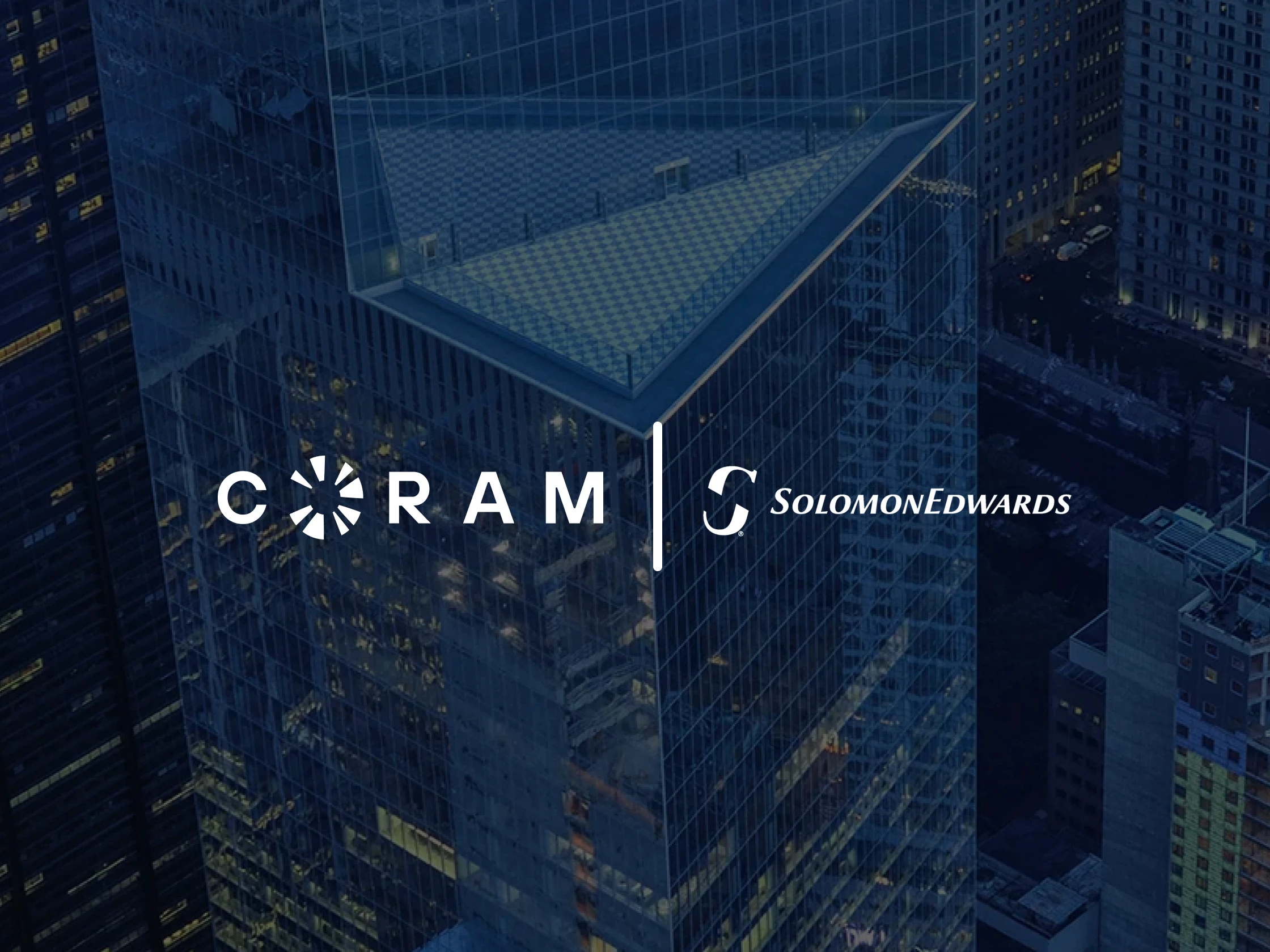Recent data privacy issues in the security camera industry have raised important questions about system reliability. Is your surveillance solution truly secure, or limited by proprietary hardware and cloud dependency? Many organizations are now seeking alternatives with stronger security, flexible integrations, and open hardware options.
But which ones should you consider for your business?
In this article, we’ll explore five best Verkada competitors offering improved data privacy and integration control.
Explore the best alternatives.
Best Verkada Competitors
Choosing the right alternative to Verkada means looking for a system that balances advanced security features with flexibility and control over your hardware and data. Your ideal choice should offer:
- Seamless integration with your existing cameras and security infrastructure
- Scalable, AI features that grow with your business
- A transparent and user-friendly interface that doesn’t lock you into proprietary hardware or systems
Here are five competitors to consider.
Coram

Coram stands out as a top alternative to Verkada for its combination of advanced security features and flexible hardware options. With Coram, you get 24/7 live surveillance, real-time gun detection, license plate recognition, and facial recognition, and many other AI features. Coram ensures that your organization has the advanced technology needed to protect sensitive areas and monitor activity closely.
What are Coram’s biggest advantages?
- Real-time gun detection for immediate alerts
Coram uses advanced AI for real-time gun detection capability that recognizes firearms instantly and sends immediate alerts to security personnel. This feature is helpful for high-risk environments, as it enables rapid response during potential threats, reducing reaction time and improving overall security.
- License plate reading to streamline monitoring
Coram’s license plate recognition uses AI to accurately identify and log vehicle license plates, offering businesses a way to easily monitor and track vehicle access. This functionality is especially valuable in high-traffic areas, allowing for seamless control over parking facilities, entry points, and restricted zones without manual checks.
- Facial recognition for enhanced access control
Coram has facial recognition features that aid in verifying personnel access, providing a non-intrusive, smart way to identify authorized individuals. With this technology, businesses can prevent unauthorized entry, reduce reliance on badges or keycards, and enhance security at critical points.
- NDAA-Compliant and Broad IP Camera Compatibility
Coram stands out with its support for any NDAA-compliant IP camera, allowing businesses to integrate existing cameras or opt for free NDAA-compliant cameras from Coram. This compatibility saves costs, simplifies setup, and allows businesses to scale effortlessly while sticking to their security standards.
Coram vs. Verkada
While both Coram and Verkada offer AI-driven security solutions, Coram provides several key advantages:
- Flexible hardware integration: Verkada locks you into using their proprietary cameras, whereas Coram works with any IP camera system, which means you can upgrade without replacing your entire setup.
- Faster installation: Coram gets your cameras online in under 10 minutes with no complex firewall adjustments, while Verkada can be more cumbersome to set up due to its hardware and network requirements.
- Cost-effectiveness: With Coram, you get free IP cameras that meet strict security standards, along with unlimited user seats and granular access controls, all without the added cost of proprietary hardware that Verkada demands.
- Scalable AI tools: Coram’s AI analytics provide real-time alerts, people and vehicle tracking, and text-based video searches that are often faster and more intuitive than what Verkada offers.
Note: Coram stands out by offering an integrated Access Control and Emergency Management System.
{{cta-component}}
Rhombus

If you’re searching for a cloud-based surveillance system with powerful analytics that offer people detection, vehicle tracking, and environment monitoring. The system’s scalability means it can support businesses of all sizes, from small stores to large campuses.
Rhombus vs. Verkada
When comparing Rhombus to Verkada, there are some clear benefits:
- Integration flexibility: Like Coram, Rhombus doesn’t force you to buy proprietary cameras, giving you freedom over your hardware choices.
- Environment monitoring: Beyond standard surveillance, Rhombus includes sensors for air quality, temperature, and motion detection, which adds an extra layer of safety. Verkada doesn’t offer this level of environmental awareness.
- No cloud dependency: Rhombus provides hybrid options, allowing users to store footage both in the cloud and on local devices, whereas Verkada relies heavily on cloud storage, which can raise concerns about privacy and data control.
Avigilon

Avigilon is popular for its advanced AI-powered video analytics and high-quality imaging solutions. Its strength lies in its advanced search capabilities, which help users quickly sift through hours of footage to find important moments. This can save a significant amount of time when reviewing incidents.
Avigilon also integrates licence plate recognition and facial recognition, just like Verkada, but with even more flexibility in how these features are used. Its self-learning AI continues to evolve, making it easier to detect anomalies and improve threat detection over time.
Avigilon vs. Verkada
Here’s where Avigilon wins compared to Verkada:
- Better analytics: Avigilon’s AI is known for being more advanced, learning from patterns to improve the accuracy of alerts and detection over time. This gives it a slight edge over Verkada’s AI, which can generate false positives.
- Higher image quality: Avigilon cameras are recognized for their crisp, high-resolution footage, making them an excellent choice for locations that require detailed video evidence.
- Flexible storage: While Verkada is locked into cloud storage, Avigilon offers on-premise, cloud, or hybrid storage options, giving users more control over their video data and compliance with security regulations.
{{cta-pop-up-component}}
Eagle Eye Networks

Eagle Eye is another strong competitor for businesses looking for strong cloud-based video surveillance focusing on flexibility and scalability. Eagle Eye’s cloud video management system (VMS) supports nearly any type of IP camera, allowing users to use their existing hardware without replacing costly equipment.
One standout feature is Eagle Eye’s open API platform, which enables seamless integrations with third-party systems like access control, point-of-sale (POS), and other business solutions. This makes it especially appealing to businesses looking for more unified, connected security infrastructure.
Eagle Eye vs Verkada
- Integration flexibility: Eagle Eye supports a wide range of cameras and third-party systems, giving it a clear edge over Verkada’s proprietary hardware setup.
- Data privacy: They emphasize data ownership that allows users to control how and where they are storing their video data, with both on-premise and cloud storage options. This provides greater flexibility compared to Verkada’s cloud-only approach.
- User interface: It has a simple and user-friendly design that simplifies video management, whereas Verkada’s interface can sometimes depend highly on cloud connectivity, leading to a slow-down user experience.
Axis Communications

Axis Communications is a video surveillance system that provides a range of high-quality cameras and network video products. Its main focus is on image quality (offers 4K resolution and advanced low-light technology) that allows for clear footage even in challenging environments.
It’s popular for its reliability which makes it a popular choice for enterprises that need durable, high-performance cameras.
Axis also integrates deep learning analytics into its security systems to enable advanced capabilities like facial recognition, people counting, and motion detection.
Axis vs Verkada
- Hardware flexibility: Axis provides various camera options with different form factors and specifications, while Verkada limits users to their own proprietary devices.
- Customizable solutions: Axis offers modular, customizable systems that you can tailor as per specific security needs - a level of flexibility Verkada doesn’t offers.
- Image quality: Axis is greater than Verkada in terms of video resolution and image clarity, especially in environments with low light or challenging conditions.
Key Factors to Consider When Choosing a Verkada Alternative
When looking for alternatives to Verkada, consider these factors to find the best match for your organization:
Hardware compatibility
Solutions that integrate with existing cameras avoid a full hardware rebuild, saving on upfront costs. Many top providers support a wide range of IP cameras that allow you to seamlessly incorporate AI-based analytics without replacing current systems.
Pro Tip: Coram offers free IP cameras with its video surveillance system.
Scalability and flexibility
Security requirements grow with the growing business. Choose a system that supports multiple locations, user groups, and expansion without complex reconfigurations.
For instance, solutions that offer unlimited user access and grant permissions make it easier to scale and tailor access levels across departments. Scalability is essential for retail chains, educational institutions, or corporate offices where security needs change frequently.
Data privacy and storage options
Deciding between cloud, on-premise, or hybrid storage is key for compliance and data privacy. Cloud storage is convenient but organizations with strict data governance policies may prefer on-premise or hybrid models.
Organizations in the healthcare industry often need on-premise options to comply with HIPAA regulations, while retail chains may prefer cloud storage for easy accessibility across stores.
AI and Analytics capabilities
Advanced analytics like gun detection, facial recognition, vehicle monitoring, and motion detection are critical for proactive security. Not all providers offer these features equally, so consider your needs for real-time alerts, custom event notifications, and in-depth reports.
Research found that the global market for AI-based surveillance is expected to grow by 23% from $5.6 billion in 2023 to $16.3 billion by 2028, highlighting the importance of AI in modern security solutions.
Total cost of ownership
Look beyond initial costs; proprietary systems often lock you into costly upgrades, especially if they require branded cameras and equipment. Choose a solution with transparent pricing that includes clear estimates for software licences, support, and future upgrades.
Pro Tip: Consider long-term ROI when choosing a Verkada alternative. Some systems offer extensive support and upgrades as part of their subscription, reducing additional costs.
Still unsure of what points you should look for? Here are the factors you should consider as a priority:
Features & Performance:
Choosing the right security system depends on how well it meets specific surveillance and monitoring needs. Consider systems that offer:
- High-definition video quality with whole coverage to capture clear details across all areas.
- Advanced AI capabilities like facial recognition and object detection for enhanced monitoring.
- Convenient remote access to live footage and video archives to ease real-time response and management.
- Easier integration with existing IP cameras and network solutions for a cohesive security setup.
- Reliable performance in various environments, including consistently monitoring sensitive locations.
Cost & Value:
Investing in a security system requires careful consideration of both upfront and ongoing expenses. Look for Verkada alternatives that have:
- Transparent pricing that aligns with features and provides flexibility to adjust as needs grow.
- Long-term value with durable equipment, future-proofing features, and scalable capabilities.
- Flexible storage options like cloud-based or on-premises to meet privacy and compliance requirements.
- Fixed pricing models that fit different organization sizes and different levels of operational demand.
- The ability to support multiple cameras or devices without significant cost increase.
Ease of use:
User experience is important when choosing a security system, especially for several security teams. Look for a video surveillance system that has:
- Simple, intuitive interface that facilitates easy navigation and quick access to key features.
- Plug-and-play options for IP camera integration, minimizing the need for extensive setup or training.
- Convenient tools to store, organize, and retrieve encrypted video clips for quick incident review.
- The ability to customize and automate functions, like sending alerts based on specific triggers or events.
Customer support and service:
Security systems are only as strong as the customer support behind them, When looking for a security system, check for:
- Responsive, reliable support teams that can handle issues well and provide assistance anytime you need.
- Options for training and onboarding to help teams make the most of new features.
- Availability of support for both hardware and software for complete functionality.
Security and compliance:
Data privacy and regulatory compliance are important - no matter the security system you opt for. When selecting one, look for:
- Strong data encryption standards for video storage, whether on-premises, in the cloud, or via hybrid models.
- Compliance with industry standards and regulations – especially important for sensitive sectors.
- The system offers secure data transmission and storage, as well as tools to control who accesses footage.
- Integration-friendly options to connect with current infrastructure while maintaining security and privacy.
{{cta-component}}
Final Words: Your Security, Your Choice
When it comes to selecting the right video surveillance solution, having strong alternatives is essential. Each of the top five competitors offers unique advantages – from scalability to enhanced AI capabilities.
The key here is to find the solution that aligns well with your organization’s security needs while addressing critical gaps.
Coram turns out to be the best alternative for businesses because of its flexibility and advanced tech.
With its seamless setup that you can install and get running in 30 minutes, facial recognition, and AI-based alerts, Coram provides efficient, user-friendly solutions that scale effortlessly as your organization grows - making it a top choice for businesses wanting reliable, advanced security.
FAQ
Both Coram and Verkada offer strong cloud video security features like facial and licence plate recognition. However, Coram stands out with its open, adaptable architecture that supports any IP camera, allowing businesses to use their existing equipment without the need for costly hardware replacement.
Coram can also integrate with various access control systems that enhance operational flexibility. Its centralized AI processing, powered by NVIDIA processing chips ensures superior scalability and advanced AI capabilities.
This combination of flexibility, affordability, and efficient maintenance makes Coram a go-to option for businesses looking for a modern security solution tailored to their unique needs.
Yes, Coram provides multiple cloud storage options, allowing businesses to choose the retention period that best meets their requirements, including 30, 60, or 90 days. These options ensure that your footage is safely and easily accessible, even from remote locations. Coram’s cloud storage solutions also integrate seamlessly with its advanced analytics features, enhancing retrieval and review capabilities.
This integration allows users to do more specific searches and investigations, similar to what Verkada offers, ensuring that your security footage is both reliable and user-friendly.
While Verkada offers a comprehensive cloud video surveillance solution, its proprietary hardware requirements and limited AI architecture can restrict flexibility and future scalability. Alternatives like Coram provide more adaptable solutions, with a lower cost of ownership, and broader compatibility with IP cameras.
Moreover, Coram’s advanced AI features enhance security management and incident response. Businesses prioritize open platforms and easy integration with existing systems. Coram is a more compelling choice as it offers a smooth, future-proof solution that can grow alongside their operational needs.














.webp)

